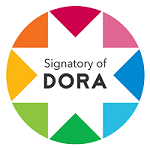Drug-conjugated monoclonal antibodies in advanced/metastatic breast cancer
DOI:
https://doi.org/10.33734/diagnostico.v62i1.427Keywords:
Antibody drug conjugates, antibodies, monoclonal, breast cancer, cytostatic agentsAbstract
The goal of this report is to analyze, in a general way, the structure and mechanism of action of drug-conjugated monoclonal (ADC) and examine the studies that led their approval in advanced/metastatic breast cancer (ABC). PubMed, Scopus and SciELO databases were used between 2000 and 2022; Bibliographic references were searched for the keywords associated with ADC and ABC. ADCs combine classical monoclonal assays with a linker and a cytotoxic payload to destroy cancer cells in a targeted manner, when there is internalization of the corresponding receptor. There are currently three ACDs that have been approved for the treatment of CMAM; studies that have demonstrated significant advantages in progression-free survival when compared to standard treatment; evaluation of its main adverse events; implications for its management in our everyday lives; and potential inclusion in the current treatment of CMAM.
Downloads
Metrics
Downloads
Published
How to Cite
Issue
Section
License
Copyright (c) 2023 Franklin Aldecoa-Bedoya, Silvia Falcón

This work is licensed under a Creative Commons Attribution 4.0 International License.


























